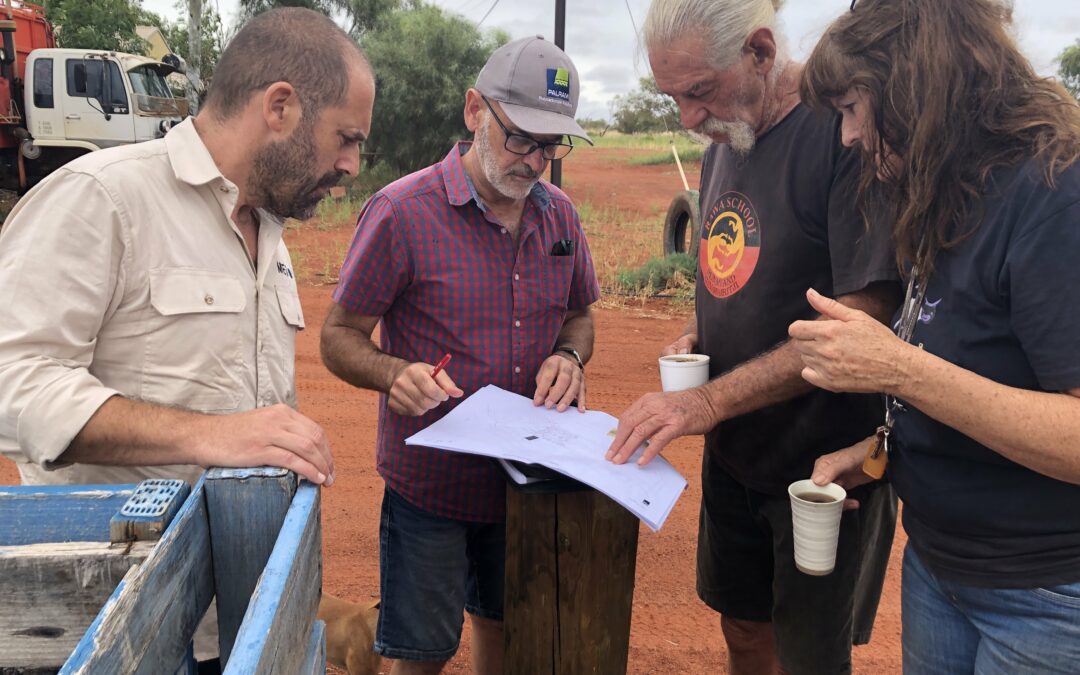Over the past four years, Rawa Community School – one of Australia’s most remote Aboriginal Independent Schools, located on the edge of Great Sandy Desert in the Pilbara Region of WA on Warnman and Manyjilyjarra Country – has been working on improving the decline of infrastructure across their two school campuses. The school not only enables Martu children to be educated on their traditional homelands in a bi-cultural learning curriculum, it is also a vital hub for the local community. Engineering partnerships enable these works to progress and catalyse the diversion of funds to other works that struggle to attract funding.
In applying a coordinated approach to addressing its infrastructure needs, Rawa Community School’s leadership team approved an Infrastructure Redevelopment Program in 2018. METIO – a social enterprise that provides project development and project management services to meet community needs – was appointed to undertake a needs assessment and program of works, in consultation with the community. The METIO team has since project-managed a series of improvements to the school infrastructure and grounds, with support from a range of organisations that provided pro bono services and funding for the program.
The initial phase of the redevelopment involved the renovation of a sports court and the school’s main building at its Punmu campus and the building of a new sports court and shade structure at its Kunawarritji campus. This phase was supported by EWB and pro bono partner Arup for the engineering design needs.
Following those works, the next phase focused on the provision of water and sanitation facilities, and outdoor learning spaces at the Punmu campus. Two aged and abandoned buildings were demolished to make way for new infrastructure – part of the master plan that has been co-designed by METIO, EWB, EIW architects, Four Landscape Studio and the school community. All of these organisations provided this design work pro bono. These works included relocation and improvements to the existing transportable toilets; provision for new drinking water fountains, fences and gates; as well as providing a shaded outdoor learning space for the students and families.
Progress and diversion
EWB partners Epiroc and Atlas Copco provided financial and volunteering support for this phase as part of their “Water for All” program, founded on the premise that “clean water is a human right”. A key component is the building of landscaped outdoor classrooms, called “learning bubbles”, which are essential to the unique learning environment at the school. Attendance, engagement and learning outcomes have been significantly enhanced when the children can spend time outdoors On Country. To date this has been weather dependent, and with average maximum temperatures regularly above 40°C, conditions are often too hot without adequate shading. A sustainable school garden with local species and bush food has also been scaped, which will aim to improve health, community and learning outcomes, with some of the Epiroc team travelling to Punmu to help with the construction work. The new facilities were officially opened in November 2022.
Pro bono partners have been vital to this project. Their support ensures that a project can actually happen. But they also unlock other projects that are underfunded.
“For the RAWA project, the pro bono support has meant we can divert the funds earmarked for part of the work that’s now being supported with pro bono, to another part of the project that needs to be funded. It fills a critical gap that often can’t be filled by other funding sources,” says Humberto Marum, Principal, METIO.


